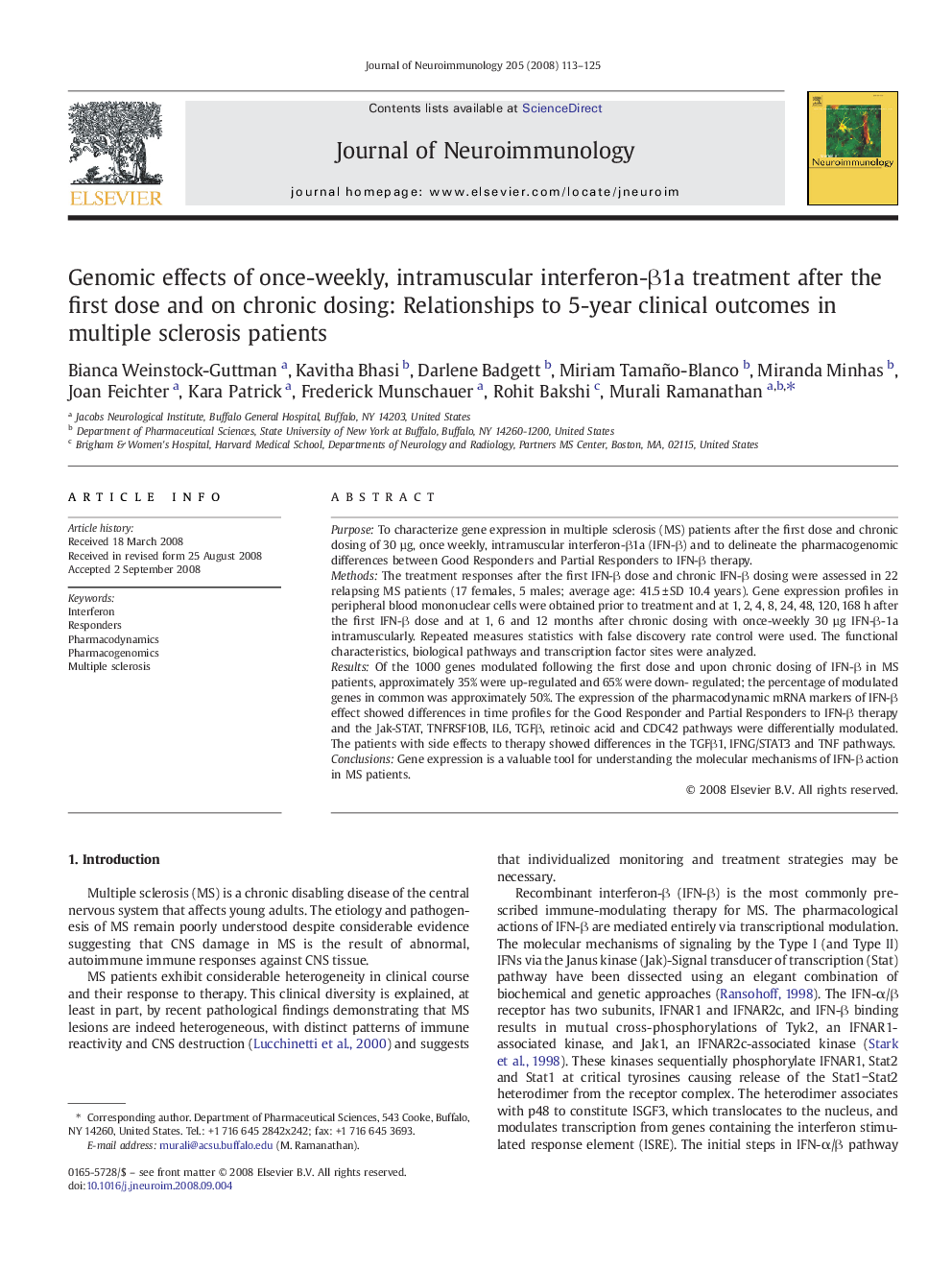| Article ID | Journal | Published Year | Pages | File Type |
|---|---|---|---|---|
| 3065113 | Journal of Neuroimmunology | 2008 | 13 Pages |
PurposeTo characterize gene expression in multiple sclerosis (MS) patients after the first dose and chronic dosing of 30 µg, once weekly, intramuscular interferon-β1a (IFN-β) and to delineate the pharmacogenomic differences between Good Responders and Partial Responders to IFN-β therapy.MethodsThe treatment responses after the first IFN-β dose and chronic IFN-β dosing were assessed in 22 relapsing MS patients (17 females, 5 males; average age: 41.5 ± SD 10.4 years). Gene expression profiles in peripheral blood mononuclear cells were obtained prior to treatment and at 1, 2, 4, 8, 24, 48, 120, 168 h after the first IFN-β dose and at 1, 6 and 12 months after chronic dosing with once-weekly 30 µg IFN-β-1a intramuscularly. Repeated measures statistics with false discovery rate control were used. The functional characteristics, biological pathways and transcription factor sites were analyzed.ResultsOf the 1000 genes modulated following the first dose and upon chronic dosing of IFN-β in MS patients, approximately 35% were up-regulated and 65% were down- regulated; the percentage of modulated genes in common was approximately 50%. The expression of the pharmacodynamic mRNA markers of IFN-β effect showed differences in time profiles for the Good Responder and Partial Responders to IFN-β therapy and the Jak-STAT, TNFRSF10B, IL6, TGFβ, retinoic acid and CDC42 pathways were differentially modulated. The patients with side effects to therapy showed differences in the TGFβ1, IFNG/STAT3 and TNF pathways.ConclusionsGene expression is a valuable tool for understanding the molecular mechanisms of IFN-β action in MS patients.
